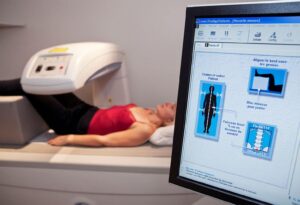What Does T-Score Measure?
A T-score is a measure used in bone density tests to assess how much bone mass you have compared to a healthy young adult of the same gender. The T-score is a crucial indicator in diagnosing conditions like osteoporosis and osteopenia. The scale is measured in standard deviations from the average bone density. A T-score of -2.5 or lower indicates osteoporosis, meaning that your bones are significantly weaker than normal and more prone to fractures.
Bone Density by Age
Bone density naturally decreases with age. In your younger years, your body actively produces new bone tissue, but this process slows down as you get older. Peak bone mass is typically reached by the age of 30, after which bone loss gradually accelerates. By the time you reach 50 or older, especially for postmenopausal women, the risk of osteoporosis increases due to hormonal changes and other age-related factors.
T-Score vs. Z-Score
While the T-score compares your bone density to that of a young adult, the Z-score compares your bone density to what is typical for your age, gender, and body size. While the T-score is more commonly used to diagnose osteoporosis, the Z-score can provide additional insight, especially for younger patients or those who may have an underlying condition causing bone loss.
Who’s At Risk?
Osteoporosis can affect anyone, but certain factors increase the risk:
- Age: Older adults are more prone to bone density loss.
- Gender: Women, particularly postmenopausal women, are at higher risk due to decreased estrogen levels.
- Family History: A family history of osteoporosis can increase your risk.
- Lifestyle Choices: Smoking, excessive alcohol consumption, and a sedentary lifestyle can contribute to bone density loss.
Improving Your Bone Health
To maintain or improve your bone health, focus on a diet rich in calcium and vitamin D, engage in weight-bearing exercises, and avoid smoking or excessive alcohol consumption. Regular bone density screenings are essential for early detection and management of osteoporosis, especially if you’re at higher risk.
If you’re concerned about your bone health or have a low T-score, it’s essential to consult your healthcare provider for a personalized treatment plan that can help strengthen your bones and reduce the risk of fractures.

